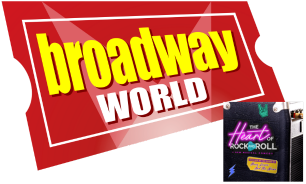Before HAMILTON, Before 1776: Three Revolutionary Broadway Musicals
When schoolteacher Sherman Edwards first started pitching his new musical about the signing of The Declaration of Independence to producers, there was little doubt in any of their minds that 1776 would be a dud. And yet after Peter Stone was brought in to write a new book, it topped HAIR as the 1969 Tony-winner for Best Musical and has been a popular choice around the country ever since.
And, of course, nobody has to be reminded of how Lin-Manuel Miranda's unique vision and inventiveness, coupled with strong storytelling, has made HAMILTON an almost instant phenomenon.
But prior to these two, there were few Broadway musicals that used the American Revolution as subject matter. Here's a look at three interesting choices that are now mostly forgotten.
DEAREST ENEMY, 1925: Music by Richard Rodgers, Lyrics by Lorenz Hart, Book by Herbert Fields. After the tremendous success of Rodgers and Hart's score for The Theatre Guild's revue THE GARRICK GAIETIES in June of '25, which gave the pair their first hit tune, "Manhattan," the songwriting team ventured to write their first book musical.
Fields' narrative came from a true New York City Revolutionary War story. In September of 1776, over 4,000 of General George Washington's troops were separated from the rest of the army after the British won the Battle of Brooklyn. Pretending to be a loyalist, socialite Mary Lindley Murray entertained General William Howe and his officers at her home with cake, wine and delightful conversation while Washington's men reassembled in upper Manhattan.
DEAREST ENEMY enjoyed what was then considered a very healthy run of 286 performances. In 1955 a television special based on the show, penned by a rising young writer named Neil Simon, starred Cyril Ritchard as General Howe.
ARMS AND THE GIRL, 1950: Music by Morton Gould, Lyrics by Dorothy Fields, Book by Herbert Fields, Dorothy Fields and Rouben Mamoulian. Based on Lawrence Langner and Armina Marshall's play, THE PURSUIT OF HAPPINESS, this short-lived musical romance starred Nanette Fabray as a revolutionary patriot living in rural Connecticut. The plot had her falling for a Hessian soldier who says decided to flee the army because he was so taken with the American people that he wants to live there. But can he be trusted?
Pearl Bailey co-starred as a runaway slave who used the name of whatever colony she was in as her own. Bailey didn't have much to do plot-wise, but she did stop the show every time the stage cleared so she could sing a solo like the jaunty "There Must Be Something Better Than Love."
Ben Franklin IN PARIS, 1964: Music by Mark Sandrich, Jr., Book and Lyrics by Sidney Michaels, Two Uncredited Songs By Jerry Herman. Having Robert Preston starring as America's most brilliant and gregarious founding father sure seemed like a great idea, but with HELLO, DOLLY!, FUNNY GIRL, GOLDEN BOY, HIGH SPIRITS and a great many other big name shows running on Broadway in 1964, Ben Franklin IN PARIS, despite a smart book and an attractive score, could only manage a six-month run.
The plot had America's elder statesman in France, seeking an audience with the king to gain support for the fledgling nation's fight for freedom. Complicating matters is that his grandson Temple, serving as his secretary, becomes romantically involved with a young French woman who is part of the movement plotting her country's own revolution.
On "The Ed Sullivan Show," Preston and company played out the scene that leads to the musical's rousing march "Half The Battle." Despite the blurry quality, the video is well worth watching.
Will the success of HAMILTON inspire more musical theatre writers to hit their history books? The revolution might not be televised, but it could wind up once again on a Broadway stage.
Videos
